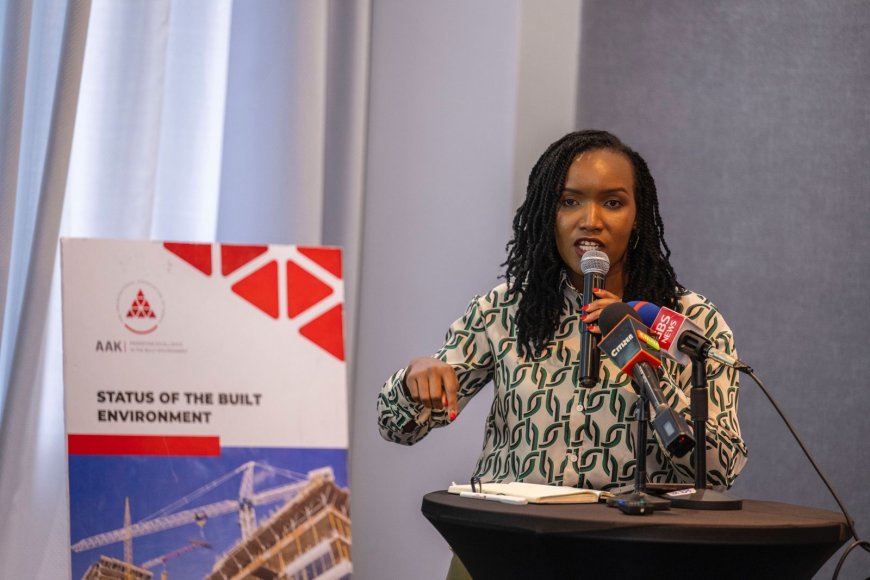Escalating Cost of Construction and Lack of Planning Still a Hurdle in the Achievement of Affordable Housing, AAK Report

Nairobi,
Thursday, December 7, 2023
KNA by Silas Waswa/Michael Omondi
The construction industry has witnessed a dynamic interplay of forces this year, marked by notable achievements and persistent challenges according to the Built Environment Report 2023 released by the Architectural Association of Kenya (AAK).
The report revealed that the industry experienced an influx of projects, with the National Construction Authority (NCA) receiving a total of 4,770 applications from January to October 2023 with 70.3 percent of these applications, totaling 3,354 being successfully registered.
Additionally, Residential development constituted the majority, representing 54 percent of the total applications, reflecting a sustained demand for development. However, the sector faced formidable challenges, notably the escalating costs of construction.
Speaking during the launch of the report, AAK President, Florence Nyole said that the cost of construction surged from Sh 34,650-77,500 at the beginning of 2023 to Sh 41,600-100,800 by December 2023.
“This spike was attributed to the increased costs of construction materials and fuel, exemplified by the surge in the price of steel reinforcement bars from Sh 140.60 per kg in December 2022 to Sh160.26 per Kg in December 2023, marking a 14.29 percent increase,” stated Nyole.
She added that the cost of cement rose from Sh 650 per 50 Kg bag in December 2022 to Sh 750 in December 2023, marking an approximate increase of 15.38 percent.
Nyole further explained that these escalations are as a result of increased import costs influenced by the devalued currency, noting that land rates have also surged by an alarming 6.41-fold since December 2007.
“In urban centers like Nairobi, what was valued at Sh 30.3 million, has now risen to Sh190.4 million in 2023. These exorbitant construction costs, hinged on the cost of building materials and land, threaten the achievement of affordable housing,” she remarked.
The AAK President insisted that the absence of essential planning and legal frameworks such as Local Physical Development Plans, Zoning Regulations, Development Control Regulations, and Building Regulations, contributed to haphazard developments in urban areas.
In measures to curb the above challenges, AAK surveyed its members to gauge the efficiency of Nairobi, Mombasa, Kisumu, Nakuru, Uasin Gishu, Kilifi, Tharaka Nithi, and Kiambu counties in granting development control applications.
The survey revealed that the delays in construction permitting experienced in the counties are not inherent to the systems or external factors but result from human actions and oversights.
While 43 percent of AAK members in Nairobi noted an improvement in approval times, with an average of 8 weeks, 7 percent reported the most prolonged approval timeline, exceeding 32 weeks.
Further, in Mombasa County, only 16.7 percent of applications received approvals, with 83.3 percent remaining unapproved. In most cases, members have to provide facilitation to county officials for successful processing.
The engagement of consultants in the Affordable Housing Program (AHP) has been AAK’s focus since the inception of AHP under the Big Four Agenda. With a total project pipeline of 838,876 units, the government has completed 584 units and launched 39,879 units, and some 34,355 units were waiting to be launched as of November 2023.
“While some of our members have volunteered to be consultants for the affordable housing project, there is still an issue when it comes to negotiation of the consultation fees for the work they are doing. Feasibility studies also need to be done for the projects and we have given our comments on the same,” voiced Nyole.
Courtesy; KNA
What's Your Reaction?
































































































































































































































































































